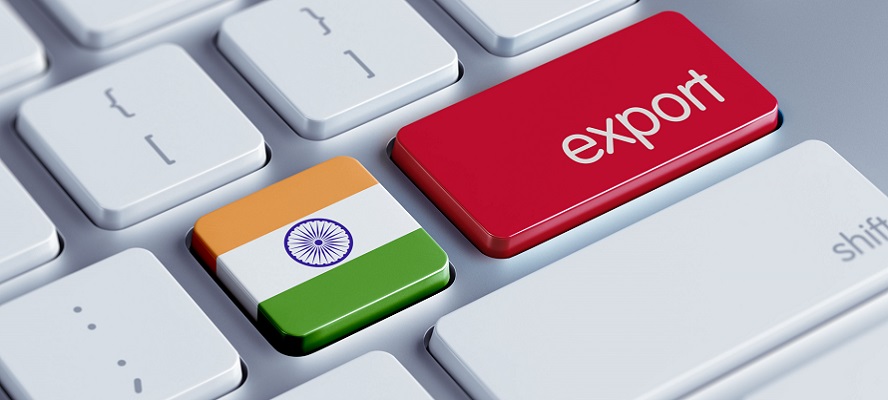UQC standardisation processes disturb pharma exports, experts raise concerns
On August 18, 2020, the commissioner of customs issued an advisory towards standardisation of UQCs for purposes of export/import declarations filed on (EDI), mandating to follow the notified UQC from August 20, 2020.
The Indian pharma industry is facing issues at the customs clearance due to implementation of mandatory standardisation of Unit Quantity Codes (UQCs) in bills of entry and shipping bills for the purpose of export/import declaration filed on Electronic Data Interchange (EDI).
Industry stakeholders informed that it is also resulting in a delay of consignment clearance process at ports which leads to very heavy demurrages for companies as well.
Experts have expressed concerns that this will also affect the sector’s export performance which has been a positive note amidst the coronavirus pandemic. Therefore, Pharmexcil is planning to raise the matter with the Ministry of Commerce.
Dr Dinesh Dua, Chairman, Pharmexcil, informed, “We are going to take it up this matter with the Ministry of Commerce to impress upon the revenue department that customs should follow the same modus operandi of the old system of checking for star export houses and large pharma companies who have got an impeccable compliance record as companies are losing 7-10 days precious days for dispatching the materials post custom inspection leading to very high demurrage for no fault of theirs thereby disturbing and vitiating global supply chain dynamics.”
He continued, “This is a double whammy for pharma exports wherein from April 1, 2020, MEIS claims are not being allowed to be uploaded to the portal thereby making exports less competitive globally and in certain cases even loss-making. On the contrary, it is understood from a source that China has increased export incentives at the rate of six per cent against the weighted average of MEIS India which gives benefits of three per cent. This too is being denied currently, effective from April 1, 2020.”
Nipun Jain, Chairman, Small and Medium Pharma Manufacturers Association (SMPMA) commented, “We have been approached by member companies expressing their difficulties in complying with the subject notification stating that some of the UQCs such as packs, bottles etc., have not been accepted in the export shipping bills and bill of entries with effect from 20.08.2020 as per the aforesaid advisory. This is resulting in undue delays and harassments of the exporters in carrying out exports activities and realisation of exports proceeds.”
On August 18, 2020, the commissioner of customs issued an advisory vide its Public Notice 101/200 towards standardisation of UQCs for purposes of export/import declarations filed on (EDI), mandating to follow the notified UQC from August 20, 2020.
According to the said public notice issued by the customs dated August 18, 2020, it states that in order to further improve data quality, even among the commercial UQCs declared for the items as per the invoice, henceforth only codes as mentioned in the Annexure (as per the shared list) would be permitted in BEs/SBs. Declarations in any other UQC will not be accepted.
Jain pointed out, “Measurements in terms of the units for the export quantities as per SION Norms under Chemicals & Allied Products Group have been fixed in “Bottles”( for instance: as A-56, A-66, A-208, A-237, A-3648, A-3664). The export shipping bills with UOM as “Bottles” have been held by the customs authorities as per the advisory resulting in severe hardship, financial loss on refrigeration and other charges. Similarly, the Advance Authorisations and Advance licenses issued by the DGFT mention “PACKS” and the same is not included as a UQC/unit of measurement in the Public Notice. The ICEGATE system is also reflecting it is an error, a UQC mismatch and is unable to proceed further with shipments. Moreover, the export obligation to the respective licenses cannot be fulfilled as the Unit of Measurement (UOM) and the endorsements have been rejected.”
An industry expert mentioned that due to the public notice, it has been holding their important doxycycline oral suspension export consignment since three days as they have been insisting for an amendment of UOM as ‘Numbers’ in place of ‘bottles’ in advance authorisation. As the UOM ‘Number’ does not suit the product ‘Oral Suspension’, companies are forced to approach DGFT, Mumbai for amendment, a process that is going to take its own time especially with the present staff strength of 15 per cent.
In the pharma sector, the unit of measurement for pharma products differ from company to company and it cannot be measured in kg/litres for all the shipments and they are generally shipped in packs/ drums/bottles/vials/strips etc.
Informing about its negative impact on the sector, Jain informed, “We have approached the Additional Director General, DGFT. Through our email communication to the authority, we have mentioned that exports were already affected due to COVID-19 and labour issue for the past five months and any new changes during these unprecedented times will further impact our exports. Keeping in view the problems expressed by the industry, we have requested them to kindly take up the matter with the Customs Authorities and allow the shipments meant for exports by making/restoring possible changes in EDI system and necessary amendments. We have also made a recommendation that, if need be, to consult with all the stakeholders. It will be a great relief to the stakeholders/exporters. This is also necessary in the wake of the economic slowdown due to COVID -19 and to strengthen the economic situation of our country.”
Highlighting the sector’s performance, Dua expressed, “Indian pharma exports have registered an excellent growth of 10 per cent between April – August 2020, even in most challenging COVID-19 times. On account of these two problems (MEIS and UQC) the growth of the pharma industry may vanish.”
[email protected]
[email protected]
- Advertisement -


